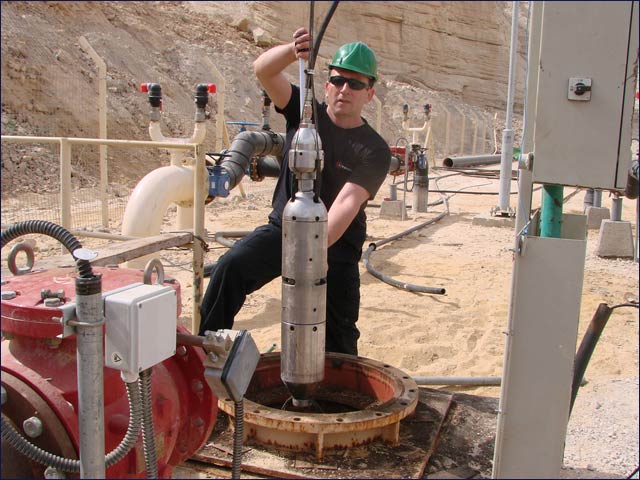By Rivka Borochov
Hydrofracking (hydraulic fracturing) has become serious business for countries looking to extract oil from deep underground. But with the process come environmental concerns that can bring business to a halt. Fracking requires large amounts of water and chemicals that leak out of the system and have negative impacts on the earth. An Israeli company called Flow Industries has a dozen years under its belt in the water industry to provide an alternative solution.
Flow Industries’ advanced green Airshock technology could help the oil and gas industry “go with the flow” in an environmentally compatible way.
“We are the plumbers of heavy industry,” says Oded Rose, the CEO of the company.
Using highly pressurized oxygen -- or in deep-well applications, nitrogen -- Airshock works like an “air cannon to create explosions or pulses of high-pressure air,” says Rose.
These pulses send a shock wave of compressed air to break up and wash out any kind of scale or debris that could result in damage or blockage. Though more high-tech, the basic action works much in the same way as a toilet plunger, says Rose.
No more explosives and dangerous chemicals
Already working with water-well giants around the world to stimulate flow or to clean out the systems, including Veolia from France and Layne Christensen in the United States, Flow’s Airshock offers the only environmentally sound solution in water-well maintenance, says Rose, who was brought into the company five years ago to expand it on an international scale.
Airshock, which can cost anywhere from tens of thousands of dollars up to $100,000, is now a leading product for companies that need to ensure that municipal water wells remain unclogged and flowing smoothly. Typically the other alternative is the toxic chemical hydrogen chloride, which seeps into waterways and is poisonous to workers.

Airshock in action
The Airshock solution is also used by chemical companies and cement factories to help their products to flow smoothly. Business is strong in Israel, India, Korea, and throughout Europe and North and South America, says Rose. Working through a third party, Flow Industries also has a considerable presence in Middle East countries that have no diplomatic ties with Israel. clogs sticky tar
Rose is looking forward to adapting the technology, first applied in 1987, to the deep underground and underwater environments of the oil and natural gas industries, where pressure differences from above land must be accounted for. Water wells don’t go nearly as deep as oil wells, which can be hundreds or thousands of meters underground.
The company has an off-the-shelf product, but can also customize solutions according to need, such as its patented solution to help the sticky tar flow through the oil sands of Alberta, Canada. This overcomes some of the water contamination issues that extraction companies there face, says Rose.
It can also be applied to manage “cold” flow issues in feeder bins in agriculture or on conveyor belts, and to “hot” applications in ducts and kilns.
Flow Industries was founded by a Russian-Israeli Jewish hydrologist who worked for Ben-Gurion University. “The founder had an idea to make water well rehabilitation better. His father and grandfather were both well drillers, but he became a hydrologist who was entrepreneurial,” says Rose. After an investment five years ago, the company went global and sales skyrocketed.
Today Flow Industries is based in Omer, near Beersheva, and the company currently employs 12 people, while outsourcing production and assembly to facilities throughout Israel.
Sales this past year were in the several millions of dollars, and the company will be establishing pilots and beta tests with natural gas and oil well companies around the globe.